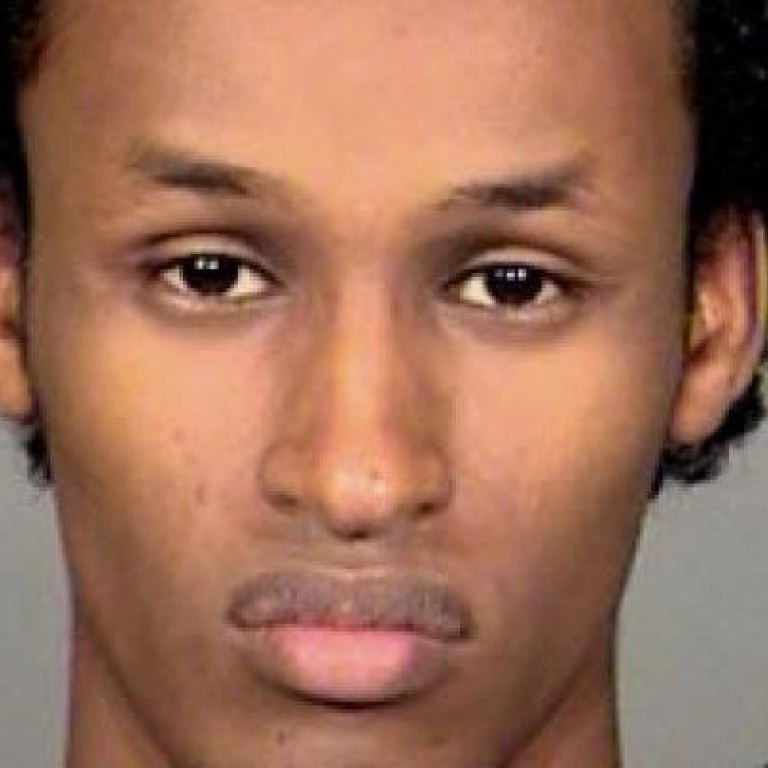
Undercover FBI agents recount Christmas bomb plot
FBI tactics in investigating a Somali-American accused of plotting to blow up a US Christmas tree lighting ceremony took centre stage on Monday, as undercover agents began testifying.
Giving evidence in disguise and visible only to jurors, one agent maintained that Mohamed Mohamud was prone to violence from the beginning and spoke of plans to “wage war” on the United States.
To test Mohamud’s resolve, the agent – who was posing as an al-Qaeda recruiter named “Youssef” – said that in his first meeting with Mohamud, he gave the then-teenager five examples of how he could be “a good Muslim”.
According to Youssef – whose real name was withheld in court - Mohamud stopped short of the most extreme option, martyrdom, but chose violence over praying five times a day or raising money for extremists.
“He said he would like to become operational,” Youssef testified.
Mohamud, now 21, faces life in prison for allegedly attempting to detonate a weapon of mass destruction – a harmless fake supplied by FBI agents -- near the crowded 2010 pre-Christmas ceremony in Portland, Oregon.
But in many ways, the FBI is also on trial as the defence argues agents coerced a gullible kid into a violent act.
Under US law, it is illegal for authorities to trick someone into a crime.
The defence has argued that sophisticated FBI agents such as Youssef used powerful psychological tools to brainwash a confused teenager, giving him specific instructions on how to plan an attack he wasn’t capable of on his own.
But Youssef said he was simply trying to assess whether Mohamud was truly capable of acting on his violent rhetoric.
In his early meetings with Mohamud, Youssef said he was not sure the young man would go forward with his plans. “I thought it was all talk,” he added.
Ultimately, Youssef and another agent gave Mohamud a fake bomb and a cell-phone detonator, telling him it would kill thousands gathered at a Christmas tree lighting in downtown Portland once he pressed the button.
After Mohamud tried twice to detonate the bomb on November 26, 2010, the FBI arrested him.
The undercover agents’ initial interactions with Mohamud are crucial to the case.
The young man’s fate hinges on whether jurors believe he was already predisposed to violence when agents posing as terrorists approached him and offered help in plotting an attack.
Also testifying in court, the FBI official in charge of the sting operation said authorities were alarmed by Mohamud’s previous interactions with al-Qaeda propagandist Samir Khan.
US-born Khan was later reportedly killed in the same CIA drone strike that felled radical Yemeni-US cleric Anwar al-Awlaki, previously linked to a US Army major who killed 13 people at a Texas military base, and to a Nigerian student accused of trying to blow up a Northwest Airlines flight on December 25, 2009.
In 2009, Mohamud wrote four articles for a magazine run by Khan called Jihad Recollections, ranging from workout tips for violen extremists to why Europe would be an ideal place for an attack.
At one point, Special Agent Miltiadis Trousas said, Mohamud wanted to include a photo of the burning towers on 9/11 with a story. Khan said it was too violent.
Trousas noted that Mohamud also sought advice from Khan on relationships and faith.
In one instance, according to Trousas, Mohamud asked Khan: “If my family are not following the Islamic law, how am I supposed to obey them?”
Khan advised Mohamud not to live with his family if he could not “persuade them,” Trousas said.
The trial continues this week with more testimony from undercover agents.
